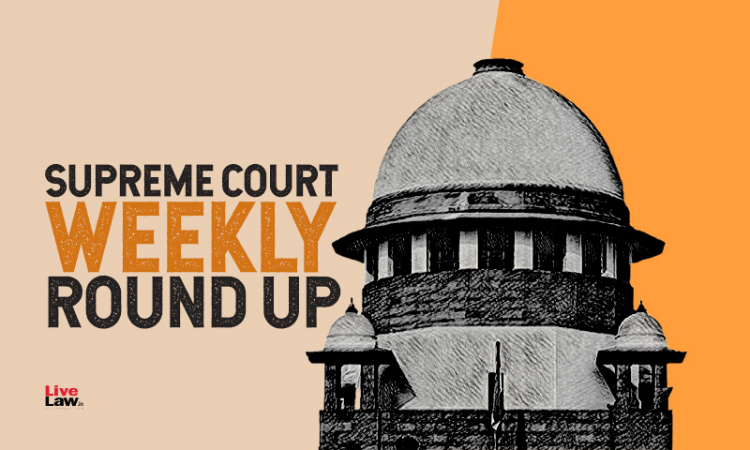Supreme Court Weekly Round Up- November 29 To December 5, 2021
Nupur Thapliyal
5 Dec 2021 1:38 PM IST

Next Story
5 Dec 2021 1:38 PM IST
JUDGMENTS THIS WEEK1. Arms Act - Illegal Use Of Licensed Weapon Per Se Not Offence Under Section 27 Unless Misdemeanour Under Sections 5/7 Proved : Supreme CourtCase Title: Surinder Singh v State (Union Territory Of Chandigarh)| Criminal Appeal No. 2373 Of 2010Citation : LL 2021 SC 687The Supreme Court has observed that illegal use of a licensed or sanctioned weapon per se does not constitute...
